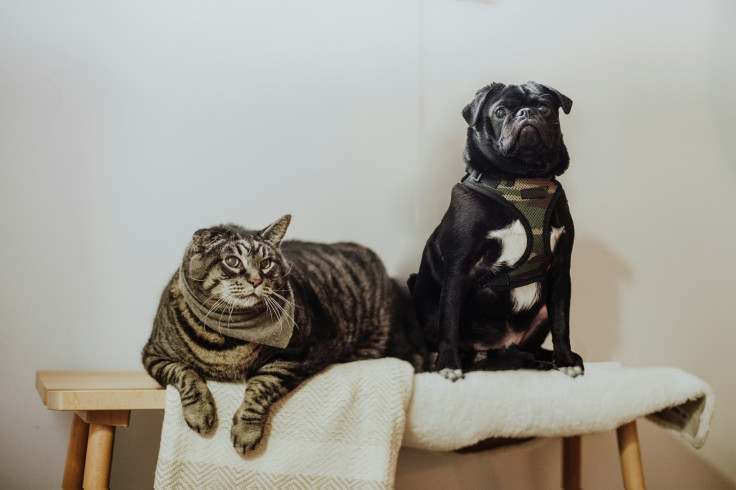Ozempic For Pets: New Drug Being Tested For Animal Obesity - Here's What We Know
LeanPaws, a vegan supplement, emerges as a natural alternative by 2026

Scientists are developing a new drug aimed at tackling obesity in cats and dogs, as rising numbers of pets face serious health risks linked to excess weight. The treatment, known as OKV-119, is being developed by biotech firms Okava and Vivani Medical and could be available by 2028 or 2029. Unlike weekly injections used by humans, the drug is delivered via a six-month implant, raising hopes that it could transform pet health management.
Pet Obesity on the Rise in the UK
Obesity has become one of the most common health problems in household pets. Recent estimates suggest that around 50% of dogs and 43% of cats in the UK are overweight. Globally, the figures climb higher, with nearly 60% of pets carrying excess weight.
Veterinary experts warn that obesity, the most common nutritional disorder in companion animals, is linked to diabetes, orthopaedic disease, cardiorespiratory problems and shorter lifespans. With pet ownership at record levels, the issue has become a growing concern for both vets and animal welfare groups.
How the New Implant Works
The OKV-119 implant delivers exenatide, a GLP-1 receptor agonist similar to semaglutide in Ozempic, through a chip-sized device placed under the skin. GLP-1 plays a key role in regulating glucose and appetite, and its receptor agonists are already widely used in human medicine to treat diabetes and obesity.
According to a 2024 study in BMC Veterinary Research, the implant was well tolerated in cats, could be inserted and removed within minutes, and maintained exenatide levels linked to weight loss and reduced food intake. Clinical trials are now expanding to dogs, with the aim of creating a months-long treatment option for managing pet obesity alongside diet and exercise.
The 'Ozempup' Effect
Media coverage has dubbed the new treatment 'Ozempup,' a play on the human drug Ozempic.
Public interest has surged, reflecting broader fascination with weight loss jabs in humans and a growing desire among pet owners for similar quick-fix solutions.
The growing attention highlights how obesity has become a cross-species health issue, with parallels drawn between human lifestyle-related conditions and those seen in domestic animals.
Veterinary Perspectives and Caution
Animal welfare groups and veterinary experts remain cautious about relying on drug-based interventions. Caroline Allen, chief veterinary officer of the RSPCA, emphasised that exercise and a healthy diet remain the most effective ways of tackling obesity in pets.
'A healthy diet and exercise are the best ways to keep our pets happy and well,' Allen said, as reported by STV News. However, she also noted that it is understandable that 'owners can sometimes struggle to manage their pets' weight.'
Professor Alex German of the University of Liverpool, who established the world's first Obesity Clinic for companion animals, has noted that some dogs have strong genetic predispositions to overeating, including a gene linked to appetite and weight gain in Labrador Retrievers. He suggested that medical implants may offer additional support in such cases, but stressed that they should complement, not replace, proper feeding, exercise and lifelong weight management.
Natural Alternatives on the Horizon
While OKV-119 undergoes trials, other solutions are also emerging. UK-based company Omni Pet has developed LeanPaws, a vegan supplement designed to mimic the effects of GLP-1 using amino acids, probiotics and fibre. In testing, 77% of dogs taking the supplement lost weight, 63% reduced body fat, and 42% showed less begging behaviour.
LeanPaws is scheduled to launch in 2026 and is marketed as a natural alternative for pet owners seeking non-pharmaceutical approaches to weight control.
What's Next for Obesity Treatments in Pets
With obesity levels among pets continuing to rise, the demand for innovative treatments is growing. OKV-119 is now progressing through wider trials and could become commercially available within three to four years, pending regulatory approval. Until then, vets maintain that balanced diets, portion control, and regular activity remain the cornerstone of healthy weight management for cats and dogs.
© Copyright IBTimes 2025. All rights reserved.





















